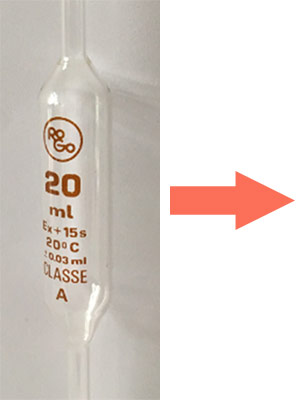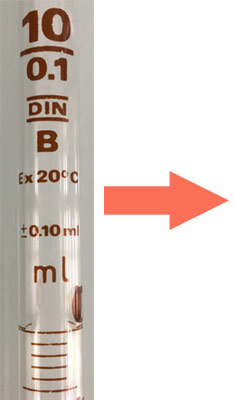In the lab, knowing the equipment well and choosing it wisely is essential: this is part of good laboratory practice. It is a prerequisite in order to obtain reliable analysis results.
Among the equipment available in a chemistry lab, the glassware is very important. Several types of glassware exist.
The distinction is made between:
- Ordinary glassware: it provides very approximate information (order of magnitude) on the volume
- Precision glassware: it provides an estimate of the volume with more or less precision according to the glassware.
Regarding precision glassware, the distinction must be made between:
- Graduated glassware: it gives an estimated volume with limited accuracy
- Volumetric glassware: only this can provide a very precise measurement of volumes.
Furthermore, there is precision glassware to measure precise contained volumes (noted In) and precision glassware to measure precise delivered volumes (noted Ex).
In addition, depending on the level of precision of the glassware, there are two classes:
- class A glassware: the most accurate (tolerance
- class B glassware: tolerance twice as high as for class A (tolerance



For some applications (e.g. with liquids that attack glass such as hydrofluoric acid), it is preferable to use plastic material instead of glass.








